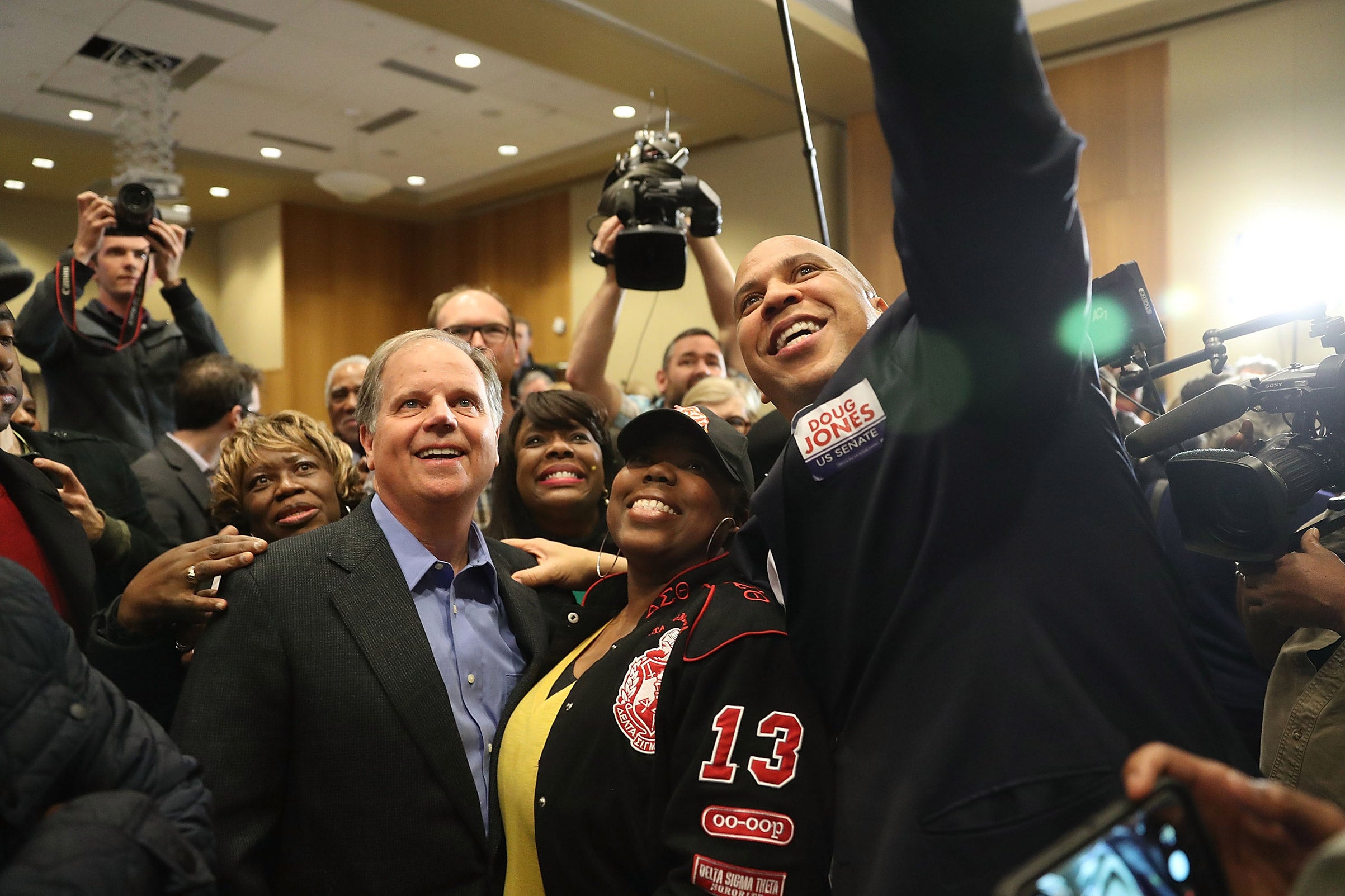
Doug Jones defeated Republican Roy Moore on Tuesday, becoming the first Democratic senator to represent Alabama in two decades and further narrowing the Republican’s slim majority in the upper chamber.
Jones, who the Associated Press called the winner shortly before 10:30 p.m. ET, also became the first Democrat to succeed in 2017’s Congressional special elections, with the exception of California’s 34th district, which only had Democrats contending for the seat.
Jones cannot be seated until the Alabama’s Secretary of State certifies his win. John Merrill, Alabama’s Secretary of State, told TIME the results will be certified between Dec. 26 and Jan. 3. The Senate has yet to set a date for the swearing in, a representative from Senate Majority Leader Mitch McConnell’s office told TIME Monday.
Depending on timing, Jones could potentially pose an impediment to Republican lawmakers’ attempts to pass tax reform,which lawmakers are currently hashing out with their colleagues in the House of Representatives and would like to send to President Trump before the new year.
His victory also means that the Republicans’ majority for the foreseeable future has narrowed to just two. The split will be 51-49, which means the party can only afford one defection on a bill for it to pass the chamber. (Vice President Mike Pence would cast the tie-breaking vote in that scenario). No Democratic Senators voted for the proposal when it passed in the early morning hours of Dec. 2.
But McConnell reportedly said that Luther Strange, the current Alabama Senator who lost to Moore in the Republican primary, will remain in the Senate through the end of the session.
Jones’ victory in Alabama, a state which tends to favor conservative candidates, was arguably aided by the rocky candidacy of Moore, who found himself embroiled in controversy when multiple women alleged he had pursued them when they were teenagers and he was in his thirties. Moore denied the allegations, but lost the support of Senators who had endorsed him, as well as financial support from the National Republican Senatorial Committee, although he ultimately regained support from the Republican National Committee and won the endorsement of President Trump.
Exit polls, however, showed that Jones was buoyed by African-American turnout, which stood at roughly 30 percent, two percent higher than the 2012 election. These voters overwhelmingly broke for Jones.
And Jones, who had a massive spending advantage over Moore — he raised nearly $12 million while Moore raised a little over five million— had the full support of the Democratic establishment, and on the final days of his campaign he decided to use it.
New Jersey Sen. Cory Booker campaigned for Jones in the state on Saturday, and both former President Obama and Vice President Joe Biden recorded robocalls supporting him. He also had support from celebrities; in the final days of his candidacy he received donations from Hollywood stars like Rosie O’Donnell and Jimmy Kimmel. Charles Barkley joined him onstage at his final rally, and Alyssa Milano phone-banked for him and drove voters to the polls.
This article originally appeared on TIME
